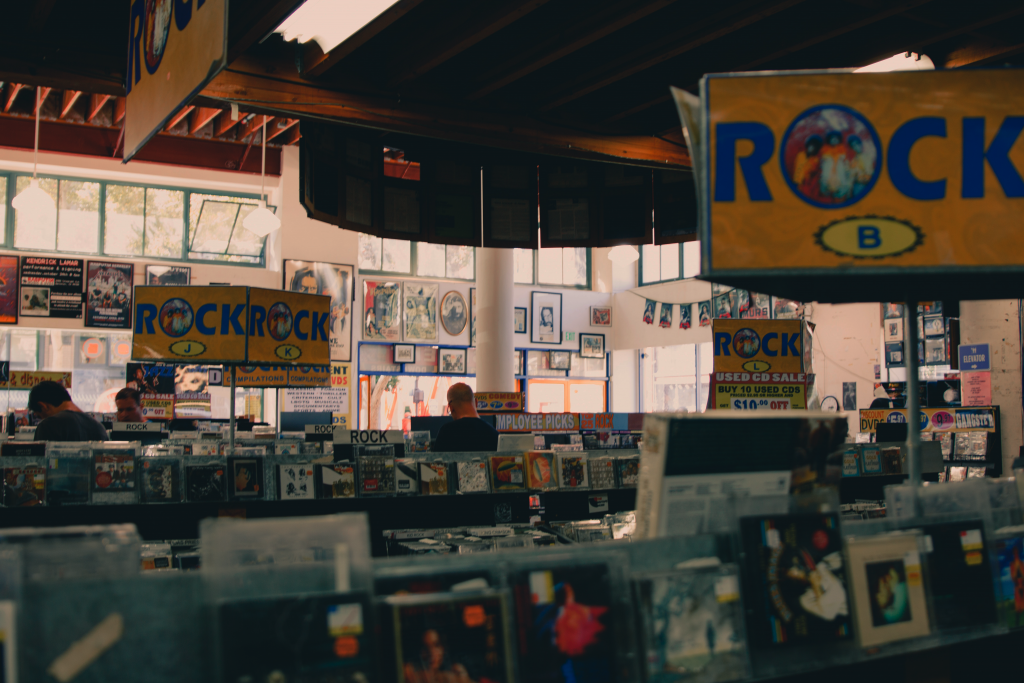
Elio Bordi is a busy man. Between running the label’s website and magazine alongside being the promo manager for Frontiers, we were lucky to sit down with him to talk about what he loves the most: music and how the music market is adapting to the streaming revolution alongside how piracy is becoming a game changer in this marketplace.
But firstly, let’s start from the beginning. You may have heard of Frontiers, an indie label that specializes in Melodic and Hard Rock. Based out of Naples, Italy, for the last decade, they have managed true Rock legends from Toto to Def Leppard to Primal Fear. However, despite being a cornerstone for Hard Rock distribution, they’ve also heavily invested in new bands seeking the fame, musical craftsmanship and guidance of the label. There is no doubt that since 1996, Frontiers has established itself as a highly respected and sought out the label to be a part of. This is probably why Elio is such a busy man.
Spotify has been a game changer in the music industry. It has revolutionized how audiences are accessing music and have proven to be a successful tool for audience outreach. Now indie bands, through platforms such as Spotify, can easily connect to fans and build a fan base. How has this streaming revolution impacted your label?
The legal streaming is helping the industry in many ways. First of all, it makes music available everywhere – everything can be accessed on a smartphone or computer. It’s become really clear that there are many positive aspects to these that make it easier for people to listen to music. Also, it makes easy to come across new music and discover new bands or artists you’ve never listened to before. Plus, streaming makes pirates sites and illegal files more difficult to use since only need a website or some software to give us the pleasure of music. We have always been open to digital and streaming and today we are really focused on it, even if we give always great importance to physical CD and vinyl, which still hold a clear percentage of the market.
We hear a lot about the direct-to-fan strategies labels are now using now in order to build relationships and grow a fan base. This is especially happening via social media platforms. Can you tell me how legal streaming services improved this strategy and how important is social media for your artists?
Streaming has a really important role in the social media World. When you are logged into Spotify or similar, you can share what you’re listening to on Facebook, for example. This way you can spread music and bands to your friends and contacts making them available for listening on their timelines. This is a really powerful feature that helps to extend the art to everyone. In the same way, labels and artists can spread their info and news to all personal followers, supporters, fans, and friends, making a direct connection with them all. No filters, chains or delays, just spread news directly and give fans the possibility to comments or send messages about what is posted. Simply amazing!
Read our blog: ANTI-PIRACY REVOLUTION CONTINUES FOR GLOBAL MUSIC AND FILM ARTISTS
So now let’s talk about the big topic: piracy. Piracy is still a massive headache to the music industry, especially with the rise and popularity of stream rippers. Do you think there is enough being done to raise the awareness of the threat of piracy? In your opinion, what more could be done to help people understand and be educated of this threat and steer them away towards legal platforms? What are the implications of piracy to a label such as Frontiers Records?
As said before, thanks to social media giving us a direct connection with our fans and followers, we always try to make posts and discussions about this matter that generate huge reactions in terms of comments and the ideas those throw up. In this way, we try to explain, from our position as a label and music lovers, why piracy is so dangerous at every point where it touches all the different sides of the music world. Our goal is to make people more conscious of what illegal music is and the negative effect is having on all of us. We know that piracy is so difficult to stamp out – it’s probably impossible to stop it once and for all – but I’m positive about it and I think the percentage of illegal music will drastically go down in the next few years (as indeed I know they already have started to in the last couple of years).
To find out more about MUSO’s suite of piracy solutions, please visit Products.